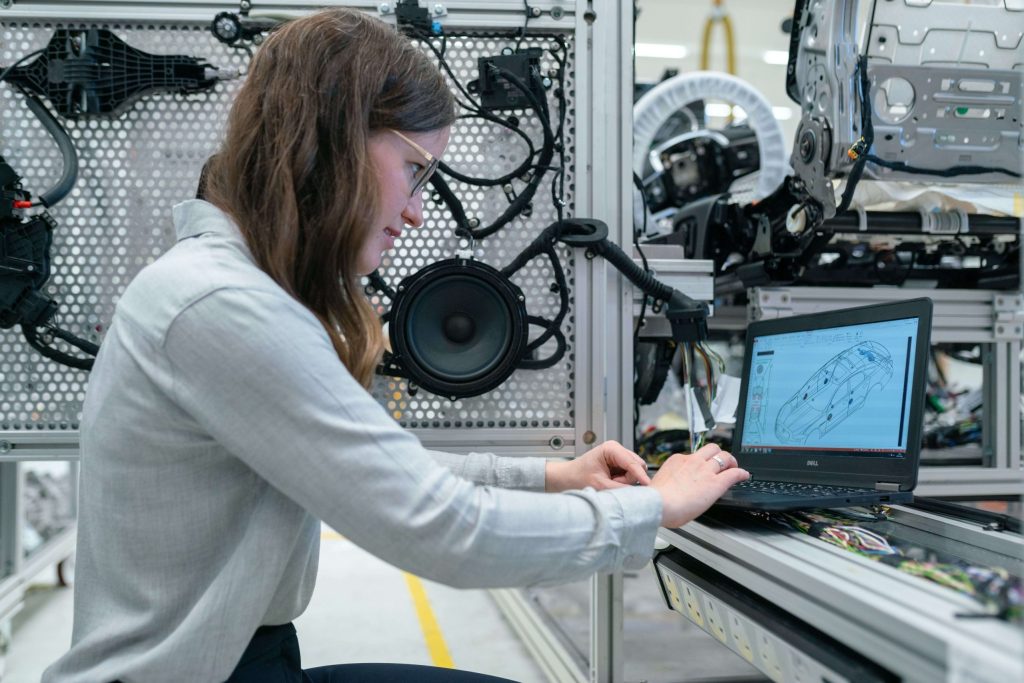Why choose the London School’s 3rd year engineering programme?
Aim of the programme:
- The focus in this semester of Year 3 Undergraduate Studies in Engineering aims to equip students with a strong foundation in computing subjects such as computational thinking, Application Development, and Artificial Intelligence. The objective is to develop robust problem-solving abilities, high competency, and a professional approach in software development.
- The programme also aims to enhance employability skills by including the interdisciplinary topics for future managers: leadership, written and oral communication, finance and entrepreneurship along with operational mathematics.
Programme Benefits: This programme offers students
- A distinctive computer-focused curriculum – students engage in experiential, experimental, and collaborative learning using a variety of computer languages and mathematical tools.
- An applied experience – students work on hands-on real-life projects developing all the skills needed in problem solving.
- An introduction to management – students obtain fundamental knowledge and abilities in finance and entrepreneurship.
- An enhancement of employability skills – students learn and experience a wide range of skills that employers are looking for (teamwork, communication, critical reflexion, intellectual curiosity, and organisation).
- A study abroad experience – students develop their autonomy by living in a foreign country.
What is the London School’s 3rd year engineering programme?
Knowledge
By the end of this programme, students will have demonstrated:
1. A broad and in-depth knowledge of problem-solving techniques using quantitative methods and/or computer programming.
2. A critical understanding of essential concepts, principles, and practices of management and entrepreneurship theories.
Skills
By the end of this programme, students will be able to:
3. Structure arguments based on detailed subject knowledge to justify the selection and use of tools and techniques, recognising their limits and their societal implications.
4. Demonstrate the ability to effectively communicate a wide range of ideas orally and in writing, producing organised work with rigorous, accurate and evidence-based arguments.
5. Demonstrate and assess critical thinking skills, particularly in the evaluation of results of computer programs or simulations.
6. Apply a sophisticated knowledge of quantitative methods and computer programming to solve real-world engineering problems.
Values
By the end of this programme, students will have demonstrated a commitment to:
7. Recognising, respecting, and applying the five values of OELS, particularly in the context of a professional engineering environment.

Approach to learning:
The teaching contact hours will vary based on the level of study for each module. In a typical week, contact hours will include small to large group teaching and tutorials. The number of contact hours may vary for each module.
In addition to the teaching hours, students are expected to undertake significant self-directed study every week depending on the requirements of each module. Students are expected to read and watch assigned material (text, articles, podcasts, videos…) independently, attend all classes, workshops and activities in their schedule (unless noted “optional”), actively participate in group discussions, and where appropriate, work in collaboration with their peers for formative and summative assessments.
During the term, students will benefit from our application-driven teaching approach with access to recent teaching tools, using learning techniques such as flipped classroom where students will prepare in advance by researching a particular topic or challenge.
Assessments:
During the semester, students will be assessed via a range of methods depending on the module. The assessment methods include assignments, exams, group discussions, essays, group projects, presentations, etc.
What is the diploma obtained with the 3rd year of engineering at the London School?
Thanks to the London School’s 3rd year Engineering programme, you will obtain a London certificate awarded by OMNES Education London School.
Level 6 (Undergraduate Year 3)
What are the admission criteria for the 3rd year Engineers at the London School?
- English Level: minimum B1
- Completion of Level 5/Undergraduate Year 2 of Engineering studies
How do I apply for the 3rd year engineering at The London School?
For students who are already enrolled in one of our OMNES Education schools, you can contact your school office directly.
For students who are not registered in one of our OMNES Education establishments, you can can apply directly below..
Last update on


